Farming and community support turns Dijas' worries into smiles
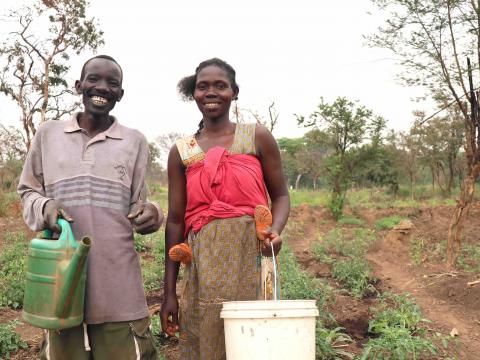
When 40-year-old Dijas Nasran, a father of five, fled from the Nuba mountains of neighboring Sudan to South Sudan, he did not imagine a good life is possible for his family in a refugee camp. “I was worried about how my family will survive when we get to the camp.”
Dija once owned acres of farmland in his country but when the conflict intensified, he decided to find a refuge for his family’s safety. ”We fled by a motorboat and a vehicle with the help of authorities and the UNHCR”, he says.
Supported by the World Food Programme (WFP), the family is provided by World Vision with monthly food ration and cash assistance, clean water supply, education for the children and health services. They were also supplied with seeds to grow vegetables and other farm products.
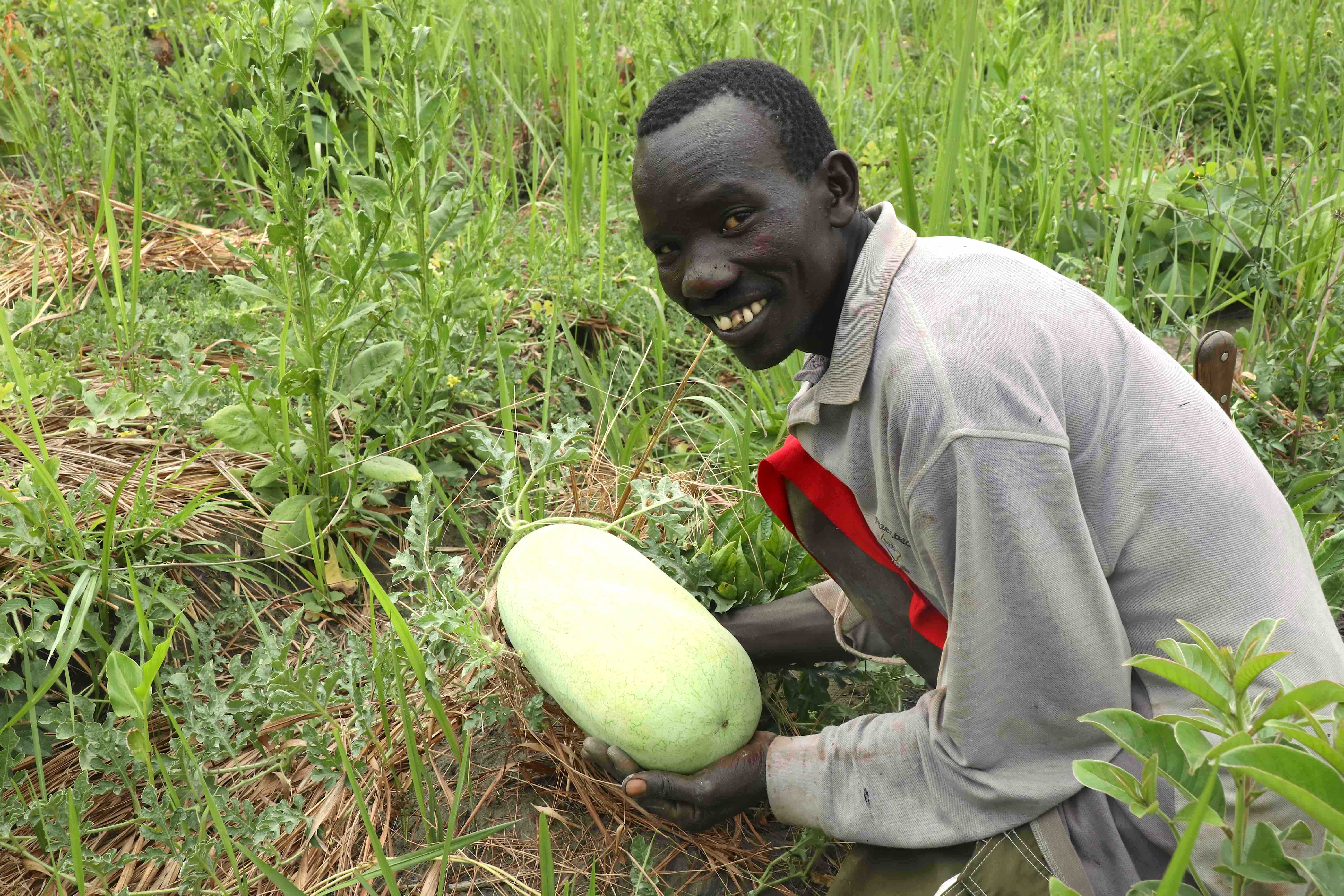
“I produce vegetables like onions, tomatoes, okra, and watermelon. I sell most of them in the market and keep some for home consumption”, he shares.
Just like the over 5,000 refugees in Makpandu Refugee Camp, Dija’s wish is for his country to be finally peaceful so they can go home. “I am comfortable to stay here for as long as it is not safe for my family to go home.”
We have everything we need and my family is happy because not only do we receive assistance but also we have access in Yambio and Makpandu markets where I can sell what I can produce from my garden.
“We have everything we need and my family is happy because not only do we receive assistance but also we have access in Yambio and Makpandu markets where I can sell what I can produce from my garden”, he adds.
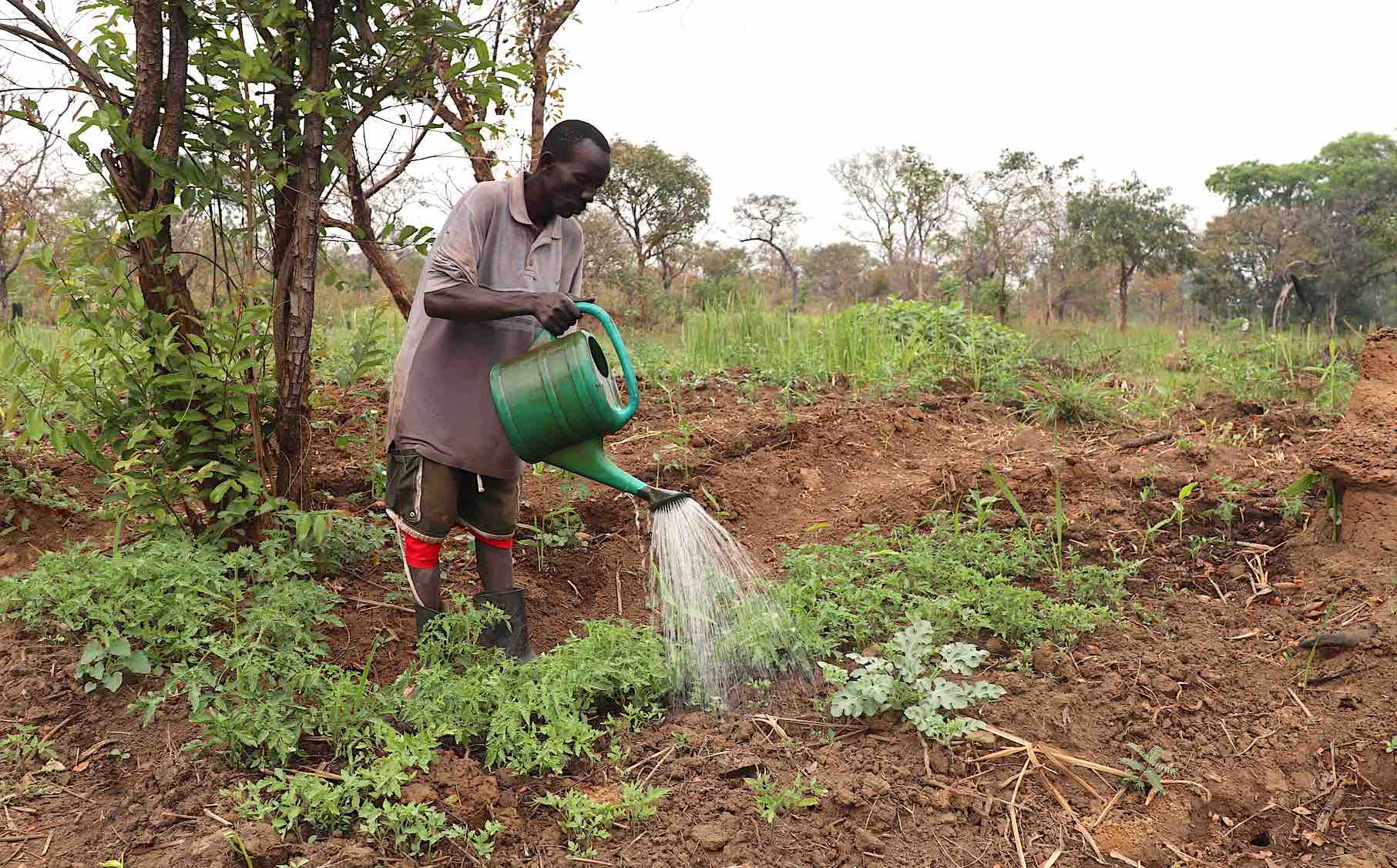
Dijas’s wife Hellen helps him in the farm. “My husband and I go to the farm every morning when our children are in school. We are always excited that even if the food assistance stops, we can feed our children and still earn income from our products by marketing them,” Hellen says.
Dijas said World Vision supported over 1,000 households with seeds, working tools, and pesticides after completing the training in partnership with UNHCR.
Hon. Anthony Sanangore, the Makpandu Refugee Camp Commissioner said the host community is very supportive providing the refugees' access to farmlands and the markets. He adds, “We also benefit from the products and services given to the refugees.”
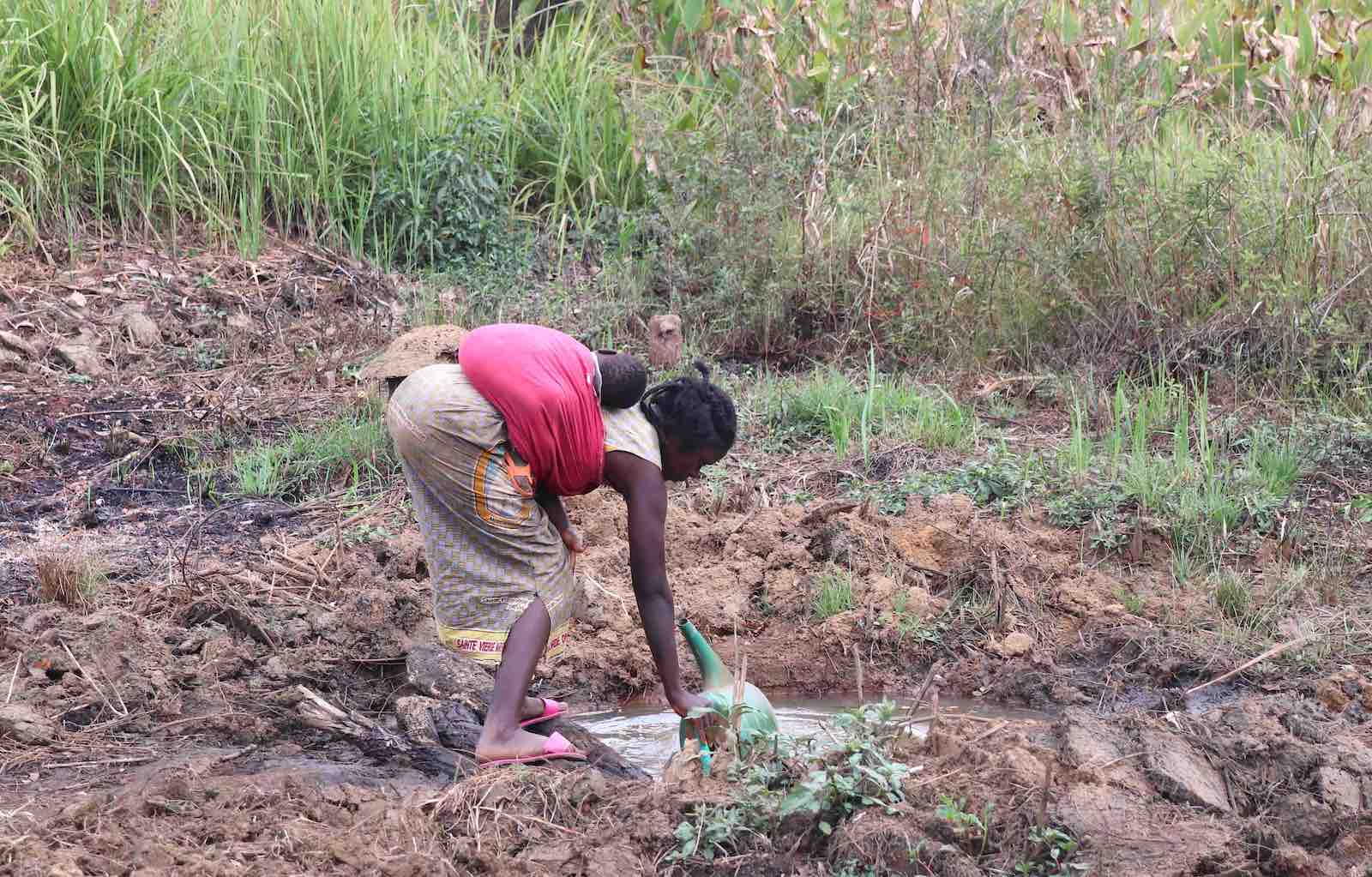
Justin Elia, World Vision’s Project Manager shares, “COVID-19 created so much fear and panic among the refugees. Some even stopped coming to the health facilities. For farmers like Dija, it restricted them from going to the markets. Their livelihood to support their families was affected. The closure of schools dashed parents’ hopes for their children.”
Makpandu Refugee Camp continues to receive refugees despite the risks posed by the pandemic. Upon arrival they are received by a trained team equipped with personal protection equipment (PPE) who imposes safety measures like temperature checks and screening.
The team also does health monitoring and surveillance once they are settled and ensures that the 14-day-quarantine are followed strictly. Elia says, “World Vision’s experience with the Ebola Virus Disease prepared us how to efficiently respond to the COVID-19 using almost the same precautionary measures and equipment.”
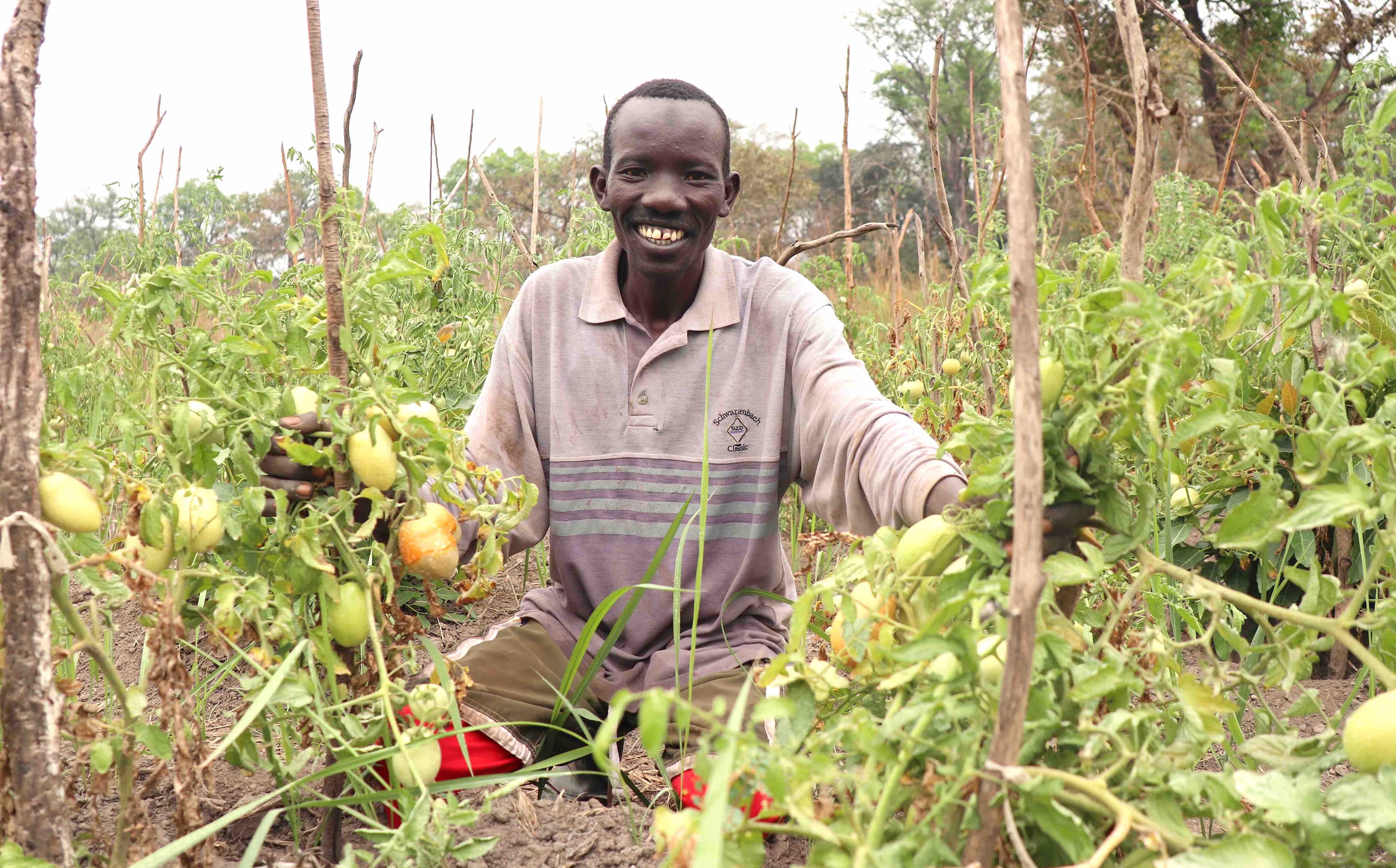
Story and photos by Scovia Faida Charles Duku, Communications Coordinator